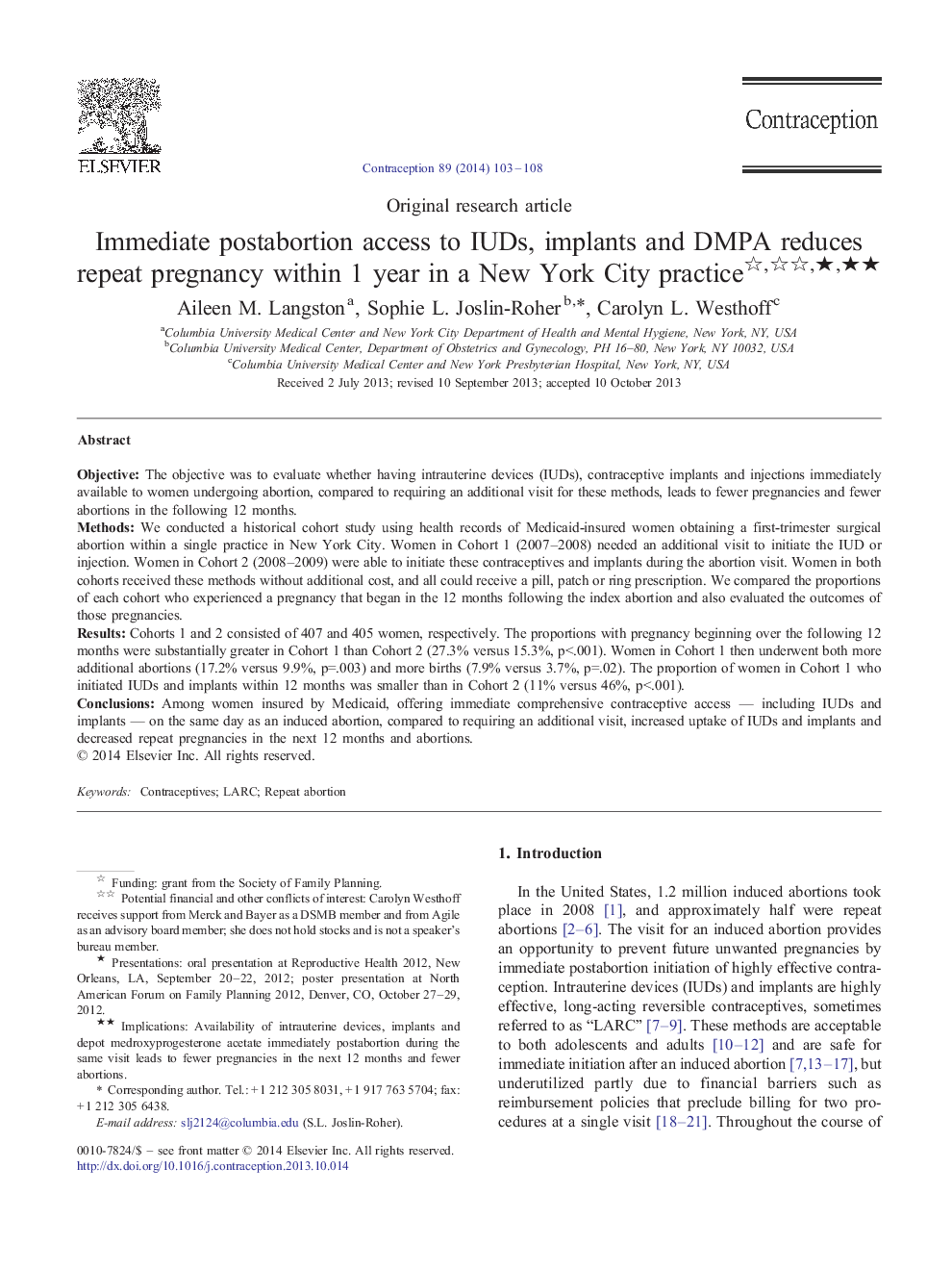| Article ID | Journal | Published Year | Pages | File Type |
|---|---|---|---|---|
| 6171703 | Contraception | 2014 | 6 Pages |
ObjectiveThe objective was to evaluate whether having intrauterine devices (IUDs), contraceptive implants and injections immediately available to women undergoing abortion, compared to requiring an additional visit for these methods, leads to fewer pregnancies and fewer abortions in the following 12 months.MethodsWe conducted a historical cohort study using health records of Medicaid-insured women obtaining a first-trimester surgical abortion within a single practice in New York City. Women in Cohort 1 (2007-2008) needed an additional visit to initiate the IUD or injection. Women in Cohort 2 (2008-2009) were able to initiate these contraceptives and implants during the abortion visit. Women in both cohorts received these methods without additional cost, and all could receive a pill, patch or ring prescription. We compared the proportions of each cohort who experienced a pregnancy that began in the 12 months following the index abortion and also evaluated the outcomes of those pregnancies.ResultsCohorts 1 and 2 consisted of 407 and 405 women, respectively. The proportions with pregnancy beginning over the following 12 months were substantially greater in Cohort 1 than Cohort 2 (27.3% versus 15.3%, p<.001). Women in Cohort 1 then underwent both more additional abortions (17.2% versus 9.9%, p=.003) and more births (7.9% versus 3.7%, p=.02). The proportion of women in Cohort 1 who initiated IUDs and implants within 12 months was smaller than in Cohort 2 (11% versus 46%, p<.001).ConclusionsAmong women insured by Medicaid, offering immediate comprehensive contraceptive access - including IUDs and implants - on the same day as an induced abortion, compared to requiring an additional visit, increased uptake of IUDs and implants and decreased repeat pregnancies in the next 12 months and abortions.
